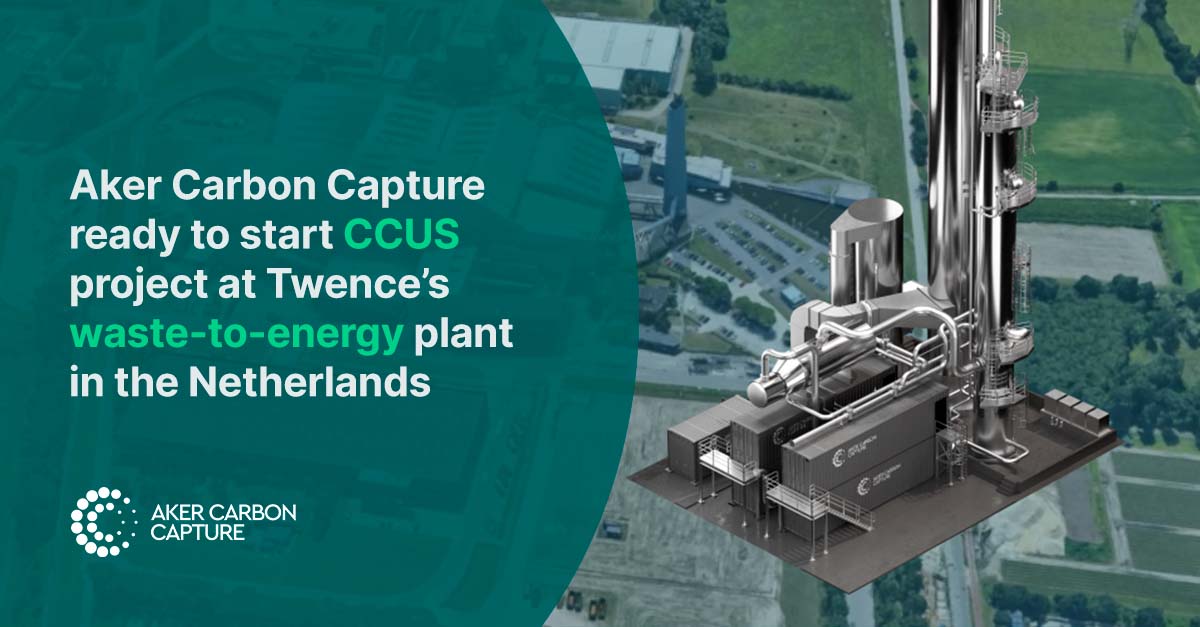Aker Carbon Capture ready to start CCUS project at Twence’s waste-to-energy plant in the Netherlands

Aker Carbon Capture is preparing to deliver a Just Catch™ modular carbon capture plant to Twence’s waste-to-energy plant in Hengelo in the Netherlands, after the Dutch waste management company announced it is ready to start up the project.
Twence converts 1 million tonnes of waste-to-energy every year, supplying more than 100,000 people in the eastern part of the Netherlands with heating and electricity. The company’s CCUS (Carbon Capture, Utilization and Storage) project is designed to support the country’s progress towards the Paris agreement goals.
As previously communicated, the European Commission in August found EUR 14.3 million Dutch investment aid to Twence for the CCUS facility to be in line with EU State aid rules.
The plant is expected to commence operations at the end of 2023.
“We are pleased to see that Twence has taken the decision to realise this project with delivery of our compact and modular carbon capture plant. After working closely with Twence since 2018, we are ready to implement our technology and execution skills to the benefit of the company and the residents of Hengelo,” said Valborg Lundegaard, Chief Executive Officer of Aker Carbon Capture.
The Just Catch standardized carbon capture plants are easy to fabricate, transport, install and operate, with compact design and short delivery times.
“Together with Aker Carbon Capture, we are ready to take the next step: constructing a large-scale plant that can capture 100,000 tonnes of CO2 per year,” said Marc Kapteijn, Managing Director of Twence.
Once the CO2 is captured and liquefied, it will be supplied by road tankers to users such as nearby greenhouses, where it will increase the yields of plants and vegetables. This supply replaces emissions from the traditional method of producing CO2 for greenhouses: burning fossil fuels.
“This also gives us the opportunity to not only supply liquid CO2 to greenhouse horticulture, but also to use it in other sectors, such as in the food industry, for the mineralisation of building materials, in the chemical industry or as a biofuel. With this plant, Twence will be contributing to a CO2-neutral environment,” said Kapteijn.
ENDS

